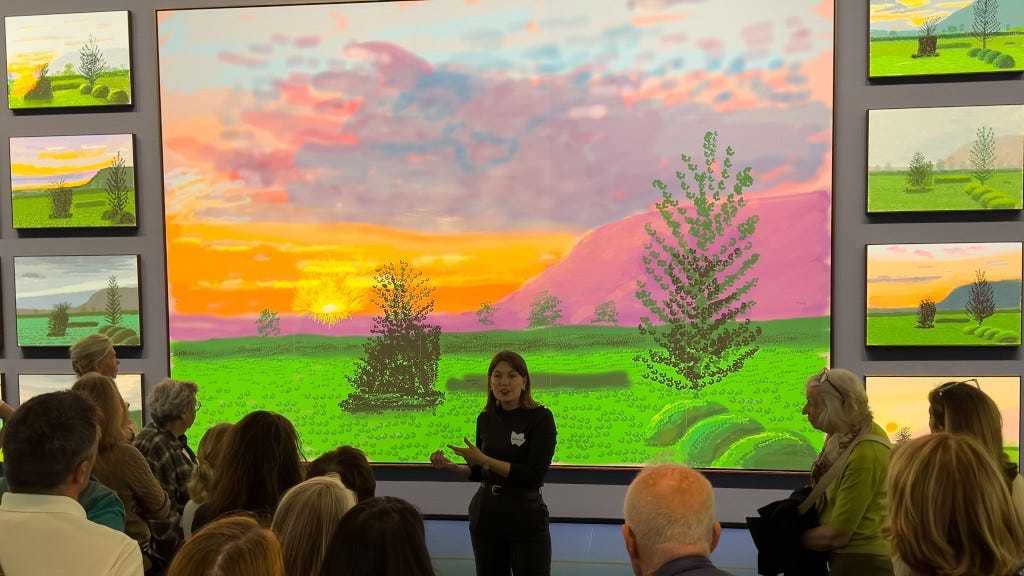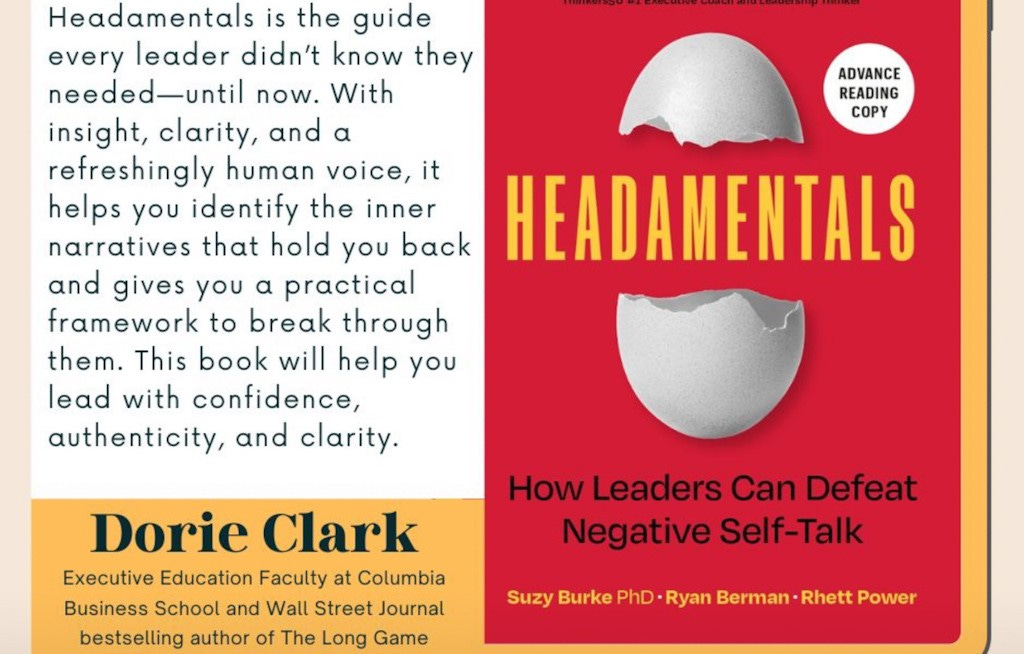Finding Excellence
Last week, during a call with my coach Nilofer Merchant, we explored a phenomenon that has transformed our organization over the past year. Each person at 100 Coaches has discovered what Sandy Ogg describe as their "click" - that magical intersection where the requirements of the role meets exceptional talent and produces genuine delight. Grace has embraced her communication gifts, making every contact feel special because they truly are special to her. Claire is diving deep into analytics and digital innovation, driven by her fascination with discovery and understanding. Janice, Patrick, Lisa and Jacquelyn are each finding their click too. As we discussed how each team member has found their zone of exceptional performance, I contemplated on the broader implications for leadership and organizational effectiveness. This conversation illuminated three powerful insights: that authentic excellence emerges when talent aligns with passion, that individual fulfillment creates collective momentum, and that organizations thrive when every role becomes a value creator through personal engagement.
There is a transformative power that comes from the alignment between natural ability and genuine interest. When people operate in their zone of exceptional talent while pursuing what brings them delight, something remarkable happens - work stops feeling like work. Grace doesn't just communicate well; she finds joy in making connections meaningful. Claire doesn't just analyze data; she experiences genuine excitement in uncovering patterns and insights. This alignment creates a virtuous cycle where passion fuels performance, which in turn deepens satisfaction and engagement. As leaders, our challenge isn't simply to identify what people do well, but to discover what they do well that also energizes them creating the context for them to flourish. The intersection of competence and delight is where sustainable excellence lives, and it's where team members move from being good at their jobs to being unstoppable in their roles.
Let’s also consider how individual fulfillment creates exponential organizational benefits. When team members find their click, they don't just become more productive - they become more collaborative, transparent, and generous with their talents. There's something about operating from a place of authentic engagement that makes people more willing to share knowledge, support colleagues, and contribute to collective success. They approach challenges with curiosity rather than resignation, and they bring creative energy to problem-solving. This shift in individual mindset creates a ripple effect throughout the organization, fostering an environment where innovation flourishes and team dynamics strengthen. The productivity gains are significant, but the relational and cultural improvements are transformational.
There is the potential for every role to become a value creator when people are properly aligned. Too often, we think of certain positions as purely operational or administrative, but when individuals find their click, even traditional support roles can become sources of competitive advantage. A person who delights in process optimization doesn't just complete tasks - they reimagine systems. As Grace finds joy in customer service she doesn't just resolve issues - she create advocates. This transformation happens because engaged individuals naturally look for ways to add value, to improve outcomes, and to contribute meaningfully to organizational flourishing. They become intrepreneurs, constantly seeking opportunities to enhance their impact and effectiveness.
In life and leadership, the pursuit of each person's click represents one of our most important responsibilities. When we help those we lead and love discover the intersection of their talents and their delights, we unlock not just individual potential but collective possibility. The magic happens when organizations become communities of people operating from their zones of exceptional performance, each person energized by their work and committed to shared success. By creating environments where talent meets passion, we transform not just productivity metrics but the very experience of work itself, building organizations that flourish because their people are truly alive in their roles.
With love, gratitude, and wonder,
Scott
A LITTLE CURATED CONTENT
Unlocking the Influence of Culture with Dr. Marcus Collins
In this engaging interview, my friend Marcus Collins, author of "For the Culture" and former Chief Strategy Officer at Wieden+Kennedy, shares profound insights about how culture truly drives human behavior and marketing effectiveness. Collins traces his unconventional journey from engineering to music to becoming a leading cultural strategist, emphasizing that successful marketing requires understanding the deeper social forces that shape our choices rather than relying on traditional demographic segmentation.
Collins argues that marketers must move beyond surface-level data to achieve true intimacy with their audiences, focusing on cultural tribes rather than personas. He demonstrates this through powerful examples like Nike's support of Colin Kaepernick versus Bud Light's misstep with Dylan Mulvaney, showing how brands with clear convictions can weather controversy while those without authentic beliefs lose everyone. His central thesis—that culture is the most powerful external force influencing behavior—offers marketers a framework for creating genuinely resonant campaigns that spread organically through communities rather than relying solely on paid media reach.
Headamentals by Suzy Burke, PhD, Rhett Power, Ryan Berman
Suzy Burke, along with co-authors Ryan Berman and Rhett Power, have a fascinating new book called “Headamentals” coming out in September 2025. The book tackles the critical issue of how negative self-talk can undermine leaders and their teams. Drawing on their extensive expertise in psychology and leadership, the authors provide a practical guide to help readers silence the doubts and distractions that can derail progress.
At the heart of the book is the 3-C Maverick Method, a powerful approach to catching, confronting, and changing destructive mental dialogues. Through engaging stories, insights, and exercises, “Headamentals” equips leaders with the tools to overcome their internal “Monster” and foster more resilient, productive teams. By learning to quiet the noise and maintain focus, leaders can make decisions with greater clarity, speed, and confidence. I’m excited to see the impact Suzy’s book will have on helping individuals and organizations thrive. If you’re a leader looking to optimize your mindset and performance, “Headamentals” promises to be an invaluable resource.
6 Ways to Deal with Disappointment Strategically by David Lancefield and Dina Denham Smith
Dina and David recently shared an insightful article about navigating disappointment in one's career. The author emphasizes that while setbacks are inevitable, how we respond to them matters greatly for our personal growth and professional reputation. Instead of getting stuck in unproductive responses like entitlement or exasperation, the author suggests focusing on what's within our control. This includes managing emotions, reassessing expectations, allowing for recovery, learning from the experience, rebuilding confidence, and moving forward strategically.
The article provides practical tips for each step, such as journaling to process feelings, reflecting on decision-making processes, engaging in restorative activities, seeking feedback, and taking concrete actions to regain momentum. The authors argue that dealing with disappointment is a strategic endeavor involving a series of choices. By making wise choices and responding constructively, we can strengthen our resolve, clarify our focus, and position ourselves for growth. It’s clear the authors have found overcoming disappointment valuable for navigating setbacks in their own career journey












